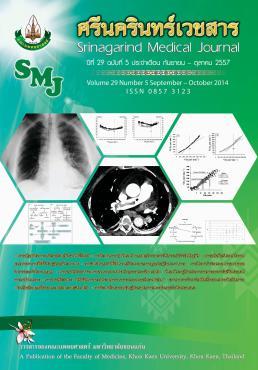Personalized Therapy in Head and Neck Cancer Patients
Keywords:
head and neck cancer, human papilloma virus, HPV, personalized therapy, molecular targeted therapyAbstract
Head and neck cancer (HNCs) is the 6th most common cancer worldwide and it still has high death rate (more than 350,000 each year) compared to other cancers. The majority of patients have locally advanced diseases at diagnosis; hence, patients must receive aggressive treatment with multimodality therapy including surgery, chemotherapy and radiotherapy. Consequently, these patients have acute and long term sequelae after treatment leading to low quality of life and fetal outcome. Currently, personalized therapy for cancer patients is intriguing because this therapy is able to decrease unfavorable outcome of treatment and provides more effectiveness resulting in long survival rate compared to conventional therapy. The majority of HNCs (70-80%) have correlation with smoking and/or alcohol drinking and the rest (20%) are related to human papilloma virus (HPV) infection. The natural history of diseases and histological features of these 2 groups are basically different. In addition, mutation of p53 proteins is occurred in HNCs relating to smoking whereas E6 and E7 proteins play an important role in HPV-associated HNCs. Consequently, these 2 groups of HNCs have different treatment outcome. Additionally, HPV-associated HNCs seems to have better treatment response compared to another group. In addition, quitting smoking also decreases a chance of cancer metastasis and secondary cancers enhancing with smoking. Presently, medical technologies for cancer therapy are extensively developed including molecular targeted therapy to increase the effectiveness of treatment and decrease side effects. Current advanced treatments for head and neck cancer such as Intensity Modulated Radiation Therapy (IMRT) trends to provide better treatment outcome and less sequelae. However, personalized therapy still requires extensive studies to individually treat patients with high effectiveness and less side effects.




